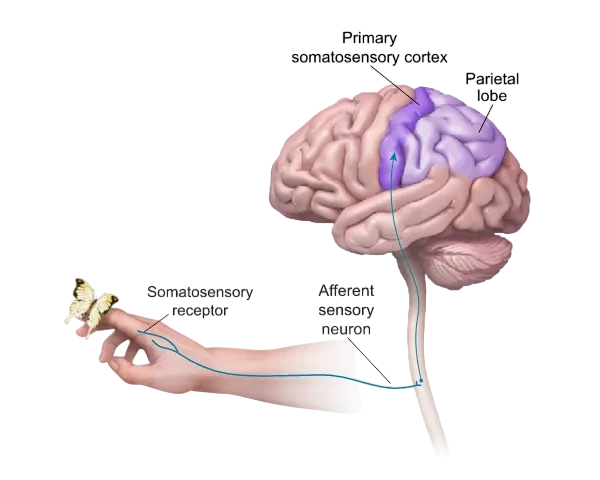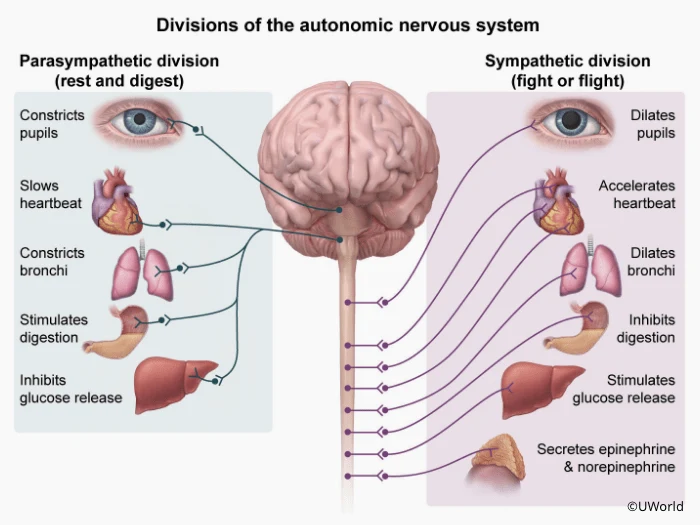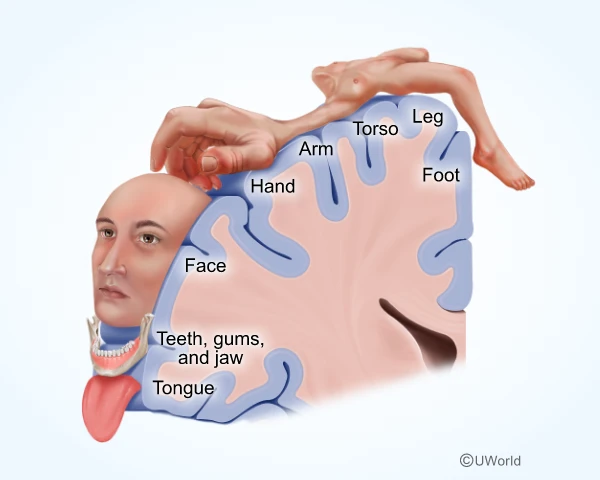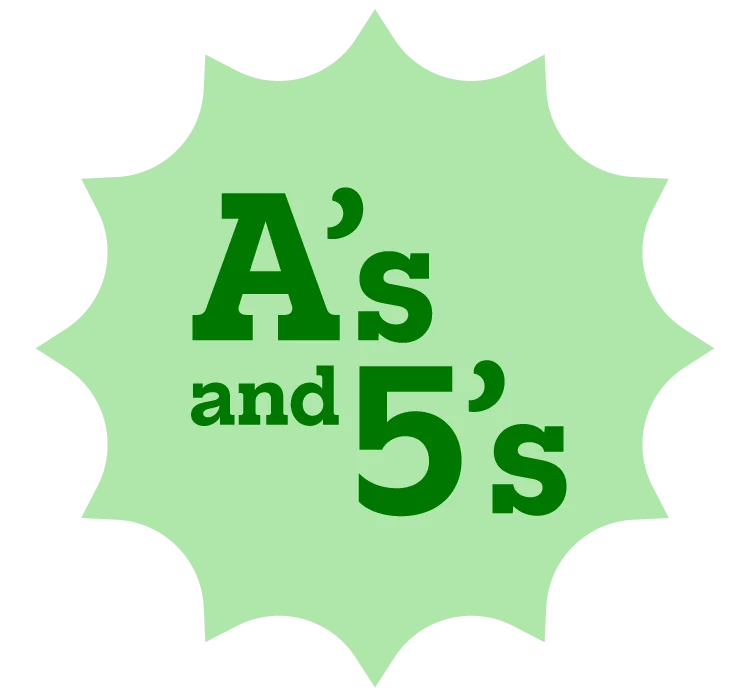AP Psych is equivalent to a one-semester introductory college course in psychology. It is not a dual-credit course. There are no prerequisites to this College Board®-classified science course that aligns with the pillars of introductory psychology identified by the American Psychological Association (APA).
AP Psychology comprises 2 parts — course content and course skills. These parts work together to help you build a strong foundation and succeed on the AP Psychology exam.

AP Psychology Units, Topics, and Key Concepts
AP Psychology has 5 units. Each focuses on a set of topics that explore a theme and carries a specific weight on the exam. While the College Board publishes the unit weighting for the exam's multiple-choice questions (MCQ) section, the amount each unit will apply toward the free-response questions (FRQ) section is always confidential. A unit's weight determines how often questions appear on the exam. The table below shows the unit weights for the MCQ section of the AP Psychology exam:
| Units | Weight |
|---|---|
| Unit 1: Biological Bases of Behavior | 15–25% |
| Unit 2: Cognition | 15–25% |
| Unit 3: Development and Learning | 15–25% |
| Unit 4: Social Psychology and Personality | 15–25% |
| Unit 5: Mental and Physical Health | 15–25% |
AP Psychology Units and Their Topics
Let's dive deeper into the AP Psychology topics and key concepts you will learn in each unit. Click on the tabs below to learn more about units and their respective topics in detail:
Unit 1: Biological Bases of Behavior
Exam Weight: 15–25% | Class periods ~ 17–23
You will explore the intersection of biology and psychology, learning how biological systems, especially the brain, influence mental processes and behavior. You will discuss how understanding this connection can enhance mental and physical health and examine how much of the human identity is shaped by the brain's functions and structure.
Unit 1 consists of 6 topics:
- 1.1 Interaction of Heredity and Environment
- 1.2 Overview of the Nervous System
- 1.3 The Neuron and Neural Firing
- 1.4 The Brain
- 1.5 Sleep
- 1.6 Sensation
Unit 2: Cognition
Exam Weight: 15–25% | Class periods ~ 17–23
You will learn why you can't always trust your senses and why people don't always make the best decisions. You will explore the strategies you can use to improve your memory and understand why the brain doesn't record memories exactly as you experienced them.
Unit 2 consists of 8 topics:
- 2.1 Perception
- 2.2 Thinking, Problem-Solving, Judgments, and Decision-Making
- 2.3 Introduction to Memory
- 2.4 Encoding Memories
- 2.5 Storing Memories
- 2.6 Retrieving Memories
- 2.7 Forgetting and Other Memory Challenges
- 2.8 Intelligence and Achievement
Unit 3: Development and Learning
Exam Weight: 15–25% | Class periods ~ 17–23
You will explore how and why you change over time, comparing who you are now to who you were as a child and who you might become. You will also learn how parents understand their baby's needs, how habits are formed, and how to unlearn bad habits and replace them with healthier ones.
Unit 3 consists of 9 topics:
- 3.1 Themes and Methods in Developmental Psychology
- 3.2 Physical Development Across the Lifespan
- 3.3 Gender and Sexual Orientation
- 3.4 Cognitive Development Across the Lifespan
- 3.5 Communication and Language Development
- 3.6 Social-Emotional Development Across the Lifespan
- 3.7 Classical Conditioning
- 3.8 Operant Conditioning
- 3.9 Social, Cognitive, and Neurological Factors in Learning
Unit 4: Social Psychology and Personality
Exam Weight: 15–25% | Class periods ~ 17–23
You will explore how people's behavior changes when alone versus in a group. You will also learn how expectations, biases, and attitudes shape your relationships with yourself and others. Additionally, you will understand the reasons behind your actions, examining whether your motivations come from personal choices or external rewards.
Unit 4 consists of 7 topics:
- 4.1 Attribution Theory and Person Perception
- 4.2 Attitude Formation and Attitude Change
- 4.3 Psychology of Social Situations
- 4.4 Psychodynamic and Humanistic Theories of Personality
- 4.5 Social-Cognitive and Trait Theories of Personality
- 4.6 Motivation
- 4.7 Emotion
Unit 5: Mental and Physical Health
Exam Weight: 15–25%| Class periods ~ 17–23
You will learn how psychologists define "normal" behavior, thoughts, and actions. You will also understand how principles from health, positive, and clinical psychology can be applied to improve your life and the well-being of organizations and communities. Additionally, you will discover where to seek help if you or someone else is experiencing a psychological illness.
Unit 5 consists of 5 topics:
- 5.1 Introduction to Health Psychology
- 5.2 Positive Psychology
- 5.3 Explaining and Classifying Psychological Disorders
- 5.4 Selection of Categories of Psychological Disorders
- 5.5 Treatment of Psychological Disorders

AP Psychology Course Science Practices
When taking AP Psychology, the science practices and skills outline what concepts students should master. While exploring the course, you’ll acquire skills that include understanding psychological concepts, analyzing data, and analyzing research studies. Please note that Science Practices 1–3 will be tested in the MCQ section, whereas Science Practice 4 will only be assessed in the FRQ section.
There are four science practices for the AP Psychology course and exam:
Practice 1: Concept Application
This science practice focuses on psychological perspectives, theories, concepts, and research findings to understand and address different situations and challenges.
Practice 2: Research Methods and Design
This science practice involves evaluating qualitative and quantitative research methods, and study designs to assess their validity and effectiveness.
Practice 3: Data Interpretation
This practice emphasizes analyzing how psychological concepts are represented in research through tables, graphs, charts, figures, and diagrams, using both qualitative and quantitative data.
Practice 4: Argumentation
This science practice involves developing and supporting psychological arguments with evidence-based reasoning and research findings.
Now that you have explored the AP Psychology topics, concepts, and skills you need to know, use our AP Psychology practice tests to fine-tune your learnings. Pair that with our AP Psychology study guide or try the AP Psychology online course to boost your readiness with expert support.
Frequently Asked Questions (FAQs)
Is AP Psychology an easy course?
What are the most important topics in AP Psychology?
Each AP Psychology unit carries equal weight on the exam, making all units equally important for your preparation.
- Unit 1: Biological Bases of Behavior (15–25%)
- Unit 2: Cognition (15–25%)
- Unit 3: Development and Learning (15–25%)
- Unit 4: Social Psychology and Personality (15–25%)
- Unit 5: Mental and Physical Health (15–25%)
Can you take AP Psychology without taking a general high school psychology course?

References
- College Board. (n.d.). AP Psychology. Retrieved March 27, 2025, from https://apcentral.collegeboard.org/courses/ap-psychology
- College Board. (2024). AP Psychology course and exam description. Retrieved March 27, 2025, from https://apcentral.collegeboard.org/media/pdf/ap-psychology-course-and-exam-description.pdf
Read More About AP Psychology
AP Psychology Study Plan & TipsAre you looking for five-star techniques for AP exams? Check out our guide on expert-written AP Psychology study plan and tips for all the advice you need to get a 5 with ease.
AP Psychology Scoring GuideWondering how the AP Psych Exam is graded? Learn all about the AP Psychology scoring system here, including score distributions, rubrics, and a calculator to project your scores.
AP Psychology Exam FormatTaking the AP Psychology exam soon and want to learn everything about the exam format? Read on! This article covers question types, the number of questions, topic weights, and more.
Best AP Psychology Prep Course ReviewDiscover the best AP Psychology prep courses! This in-depth review helps you compare options and pick the course that meets your needs.
Best AP Psychology Study Guide ComparisonDiscover expert insights into Kaplan, Barron's, Princeton Review, and UWorld. Learn how each resource compares to help you choose the best fit.
How to Self-Study for AP PsychologySelf-studying for AP Psychology? Use this proven step-by-step guide to master concepts, stay organized, and achieve top exam scores.


